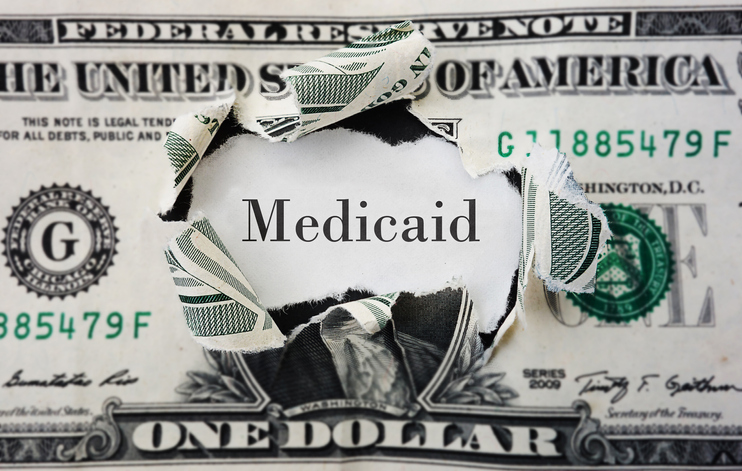Democrats in Congress are proposing a backdoor to expand Medicaid in red states that prefer the more traditional program of providing care exclusively to the disabled.
Provisions of the backdoor are contained in a $3.5 trillion budget outline unveiled in the Senate. The 92-page blueprint’s health care sections would expand Medicaid coverage to an additional 4.4 million people residing in twelve Republican-controlled states that have not expanded Medicaid under the Affordable Care Act, among other provisions.
Under the proposal, the federal share of funding for traditional Medicaid would increase by 5 percentage points, in addition to the 5-point increase contained in the COVID-19 relief bill passed earlier this year. If states reject the incentive and refuse to expand the program, the blueprint could expand coverage through a new program modeled after Medicaid.
By Labor Day, it was not clear whether the spending package could clear a filibuster in the Senate. Sen. Joe Manchin, (D – WV) indicated in an op-ed on September 2 in the Wall Street Journal he would not support the spending. “Over the past 18 months, we’ve spent more than $5 trillion responding to the coronavirus pandemic,” wrote Manchin. “Now Democratic congressional leaders propose to pass the largest single spending bill in history with no regard to rising inflation, crippling debt or the inevitability of future crises.”
Backdoor to Expanding Abortion
Pro-life organizations say this new program is a backdoor to expanding abortion in the states and bypassing the Hyde Amendment, which prohibits the use of tax dollars to fund abortions. The blueprint makes no mention of Hyde Amendment protections.
March for Life Action President Thomas McClusky wrote a letter to Congress stating the structure of the funding “would bypass state authority and pro-life protections in relations to Medicaid.”
“It would directly fund abortions on demand without copays or premiums – and could pass in theory with 50 votes,” McClusky writes. “The incentives included in the legislation would affect more than just the dozen states that have refused Medicaid expansion, as more states would probably switch over to this look-alike program as it puts less of a burden on states to match funds.”
-Staff reports
This article was updated on September 3, 2021.
